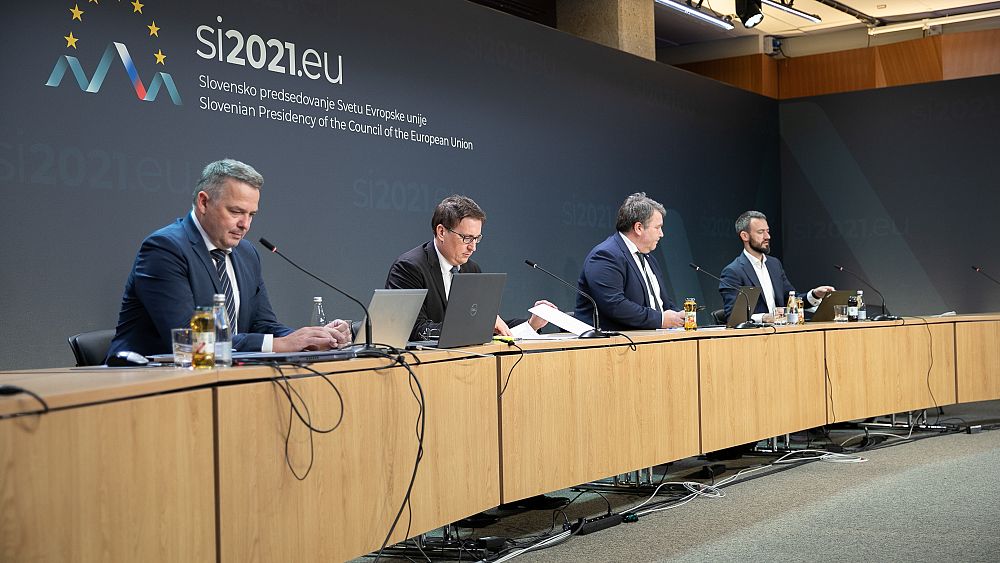
The European Union wants its Artificial Intelligence (AI) Act to be an example for the rest of the world to follow when regulating the emerging technology.
EU Telecommunications ministers held their first debate on the proposed AI Act in Brussels on Thursday to decide the guidelines for the coming years, where Slovenia’s Minister for Public Administration Boštjan Koritnik said the bloc’s AI act should serve as a global model.
“Ministers today voiced their clear support for one comprehensive law on artificial intelligence, which would serve as a model across the globe, in the same vein as the general data protection regulation, GDPR, in the area of protection of personal data,” Koritnik said.
“There is still substantial work ahead, as we want to make sure that the Artificial Intelligence Act will achieve its twin aims of ensuring safety and respect for fundamental rights and stimulating the development and uptake of AI-based technology in all sectors. The Slovenian [European Council] presidency will continue the intense work on this proposal, which it considers a top priority in the digital area.”
AI already exists in many parts of our lives, but it remains an ethical dilemma with risks and benefits.
One clear advantage is in healthcare. AI and facial recognition technology is used to identify diseases, such as dementia through signals invisible to the human eye.
A program at the Vrije University in Brussels studies these microexpressions.
“Basic facial expressions are almost common to people around the world. We are developing what is commonly called machine learning algorithms, to learn, for example, how to classify expressions: happy, sad, etc,” Dr Hichem Sahli from Vrije University told Euronews.
While there are clear benefits from research in medicine, there are other uses that carry risks. One example is in law enforcement without any oversight.
With the help of artificial intelligence, attempts are made to identify those responsible for terrorist attacks, acts of violence or accidents.
Companies like Amped based in Trieste, Italy, use AI for video analysis. While these companies submit to warranty checks, in some countries outside of the EU they don’t.
According to Despina Travlou, Secretary-General at AIIA-NPO, its use is not yet sufficiently regulated and could lead to the violation of civil rights.
“National governments and supranational organisations, such as the EU, are issuing guidelines and regulations, but we are doing so in an uncoordinated way almost haphazard way,” Travlou explained. “One cannot take on a global challenge by acting individually. Concerted global action is required.”
mynet sunar